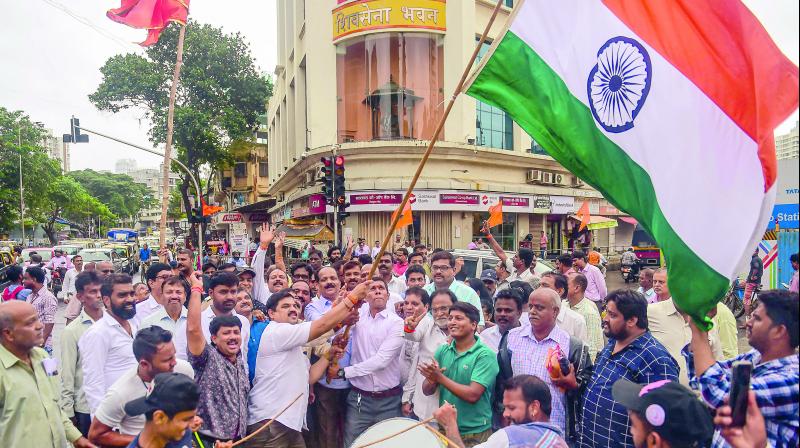Scrapping of Article 370: the Jury is still out
Mr Reddy said that “this morning, the government scrapped that proclamation through the Constitution (Application to Jammu and Kashmir) Order, 2019.

Hyderabad: Some constitutional experts say that the Centre has absolute power to scrap Article 370, which gives special status to Jammu and Kashmir, through a Presidential Order. Others argue that this is not necessarily so.
Some experts said the Centre had to consult the Constituent Assembly of Jammu and Kashmir (which was scrapped on Friday) and it had the obligation to consult the Supreme Court in view of its constitution bench verdict on Article 370.
Constitution expert Subhash C Kashyap speaking to Deccan Chronicle said that the proposal of the Centre to scrap Article 370 and divide Jammu and Kashmir into two Union Territories was constitutionally sound.
Mr Kashyap, former Secretary-General of the Lok Sabha, said, “As a student of Constitutional morality and norms, I find the revoking of Article 370 in Parliament to be completely sound in law. It does not, either in letter or method, violate any provision of the Constitution or law. It has no technical glitches on which it can be challenged and is in conformity with the rules laid down for doing so in the Constitution itself.
“However, there is a strong difference between the legal and Constitutional validity and political question of morality and aptness — it will therefore be in the realm of politics that we can find differences of opinion, praise and criticism for the move,” he said. Asked if a move to revoke the Section would be able to withstand legal scrutiny, Mr Kashyap said, "Anyone can challenge anything in a court of law. It will be for the courts to decide based on the specific objection or complaint. I am sure the move is constitutionally sound."
Sarasani Satyam Reddy, senior counsel of the Supreme Court, said the pendency of a petition on Article 35A in the Supreme Court cannot deprive the President and the government from passing an executive order.
He said as far as Article 35A was concerned, it does not form part of the Constitution but was inserted in the Presidential Order of 1954, drawing powers from Article 370.
Mr Reddy said that “this morning, the government scrapped that proclamation through the Constitution (Application to Jammu and Kashmir) Order, 2019. This Order shall come into force at once, and shall thereupon supersede the Constitution (Application to Jammu and Kashmir) Order, 1954, as amended from time to time.”
He explained that Article 370, which gives special status to Jammu and Kashmir, was drafted in Part XXI of the Constitution for temporary, transitional and special provisions.
He said Clause 3 of Article 370 is clear that the President may, by public notification, declare that this Article shall cease to be operative but only on the recommendation of the Constituent Assembly of the state. But as J&K was recently brought under Governor's rule, the question of the recommendation of the Constituent Assembly does not arise.
According to former Union law minister Shanti Bhushan, obtaining the opinion of the Supreme Court is a must before going ahead with the abrogation of Article 370. There are doubts over whether Article 370 is a part of the basic structure of the Constitution or not.
According Faizan Mustafa, Vice Chancellor of NALSAR University of Hyderabad, Article 35A was not passed as per the amending process given in Article 368, but was inserted on the recommendation of J&K’s Constituent Assembly through a Presidential Order.
He recalled that “in Sampat Prakash (1969) the Supreme Court refused to accept Article 370 as temporary. A five-judge Bench said, ‘Article 370 has never ceased to be operative’. Thus, it is a permanent provision.”

